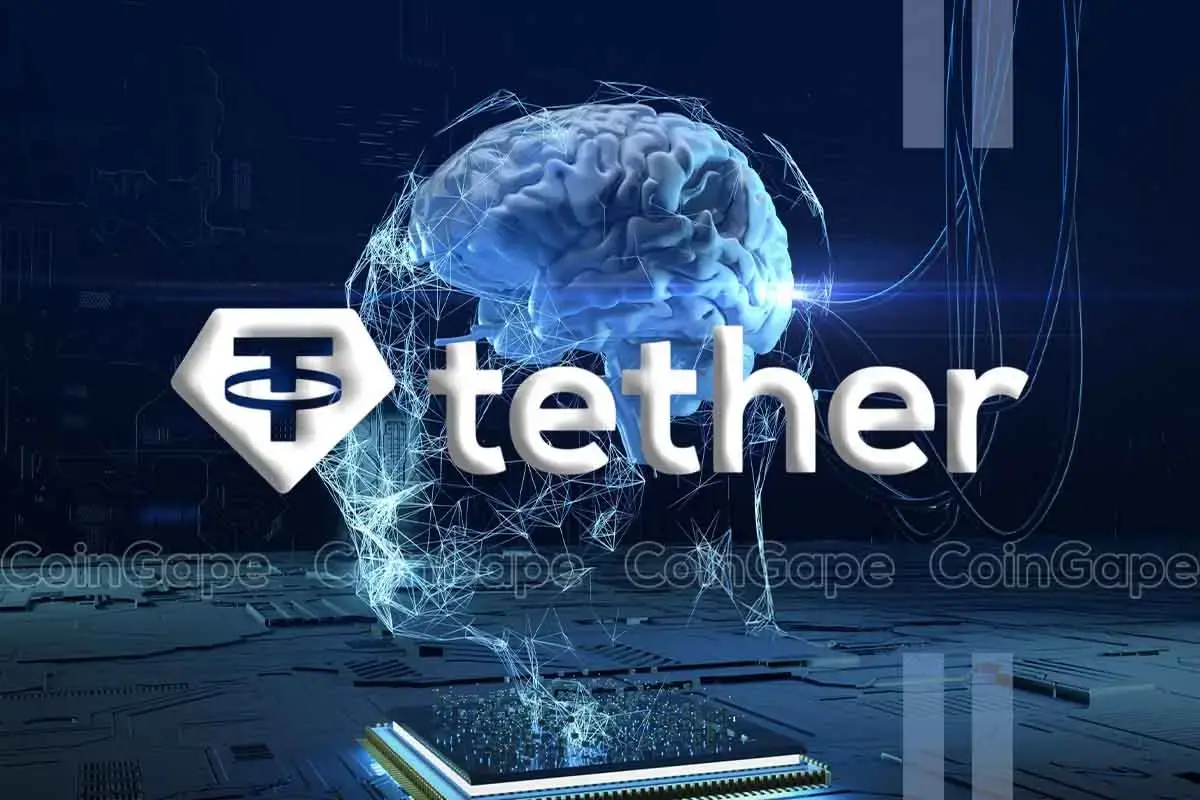Tether Risks Delisting in the EU: Implications for Crypto Traders
Tether (USDT), the world's largest stablecoin by market capitalization, is at risk of being delisted in the European Union due to regulatory concerns surrounding stablecoin governance. EU regulators are tightening oversight, citing the need for enhanced transparency and compliance with the Markets in Crypto-Assets (MiCA) framework. Reports suggest that Tether’s inability to meet specific regulatory benchmarks, particularly around reserve transparency and audit compliance, could lead to its removal from European platforms.
This potential delisting could disrupt the trading landscape for EU crypto traders. USDT serves as a primary trading pair and liquidity source on numerous European exchanges, facilitating transactions across various cryptocurrencies. Its absence may push traders toward alternative stablecoins like USDC or even lead to a migration of trading activities to non-EU platforms.
Impact on Crypto Market:
Tether’s delisting in the EU could significantly impact market liquidity and trading dynamics, particularly for European traders. It may also accelerate the adoption of other stablecoins like USDC or DAI in the region. For global markets, such a development highlights the increasing importance of regulatory compliance in determining the dominance of stablecoin issuers.

Hong Kong Exchange Expands Virtual Asset Market with New Initiatives
The Hong Kong Stock Exchange (HKEX) has unveiled a series of initiatives to expand its virtual asset market, signaling its commitment to becoming a global hub for digital finance. Key developments include regulatory updates aimed at fostering a supportive environment for virtual asset platforms, and the introduction of tokenized securities trading on the exchange. The initiatives reflect Hong Kong's proactive stance in integrating blockchain technologies into its traditional financial ecosystem.
The HKEX is also exploring partnerships with leading crypto firms to enhance its digital asset offerings. This includes plans to streamline the onboarding process for institutional investors and roll out educational programs to familiarize market participants with blockchain-based financial instruments. These steps underscore Hong Kong’s ambition to attract global crypto players and secure a competitive edge in the rapidly evolving digital finance sector.
Impact on Crypto Market:
Hong Kong’s push toward integrating virtual assets into its financial framework could boost institutional adoption and position the region as a leading crypto-friendly jurisdiction. This may lead to increased global liquidity for tokenized assets and a surge in innovation as other financial hubs follow suit. For crypto firms, Hong Kong’s initiatives open new avenues for growth and collaboration in a regulated yet dynamic environment.

Michael Saylor Introduces New Bitcoin Framework to Enhance U.S. Leadership in Cryptocurrency
Michael Saylor, the executive chairman of MicroStrategy, has unveiled a comprehensive Bitcoin framework aimed at solidifying the United States' position as a global leader in cryptocurrency innovation. This initiative proposes integrating Bitcoin into national economic policies through infrastructure development, education programs, and clear regulatory guidelines. Saylor emphasized that Bitcoin’s decentralized nature and secure monetary attributes align with U.S. interests in promoting financial stability and innovation.
Key elements of the framework include establishing tax incentives for Bitcoin mining operations powered by renewable energy and launching public-private partnerships to promote blockchain research and development. Additionally, Saylor advocates for the inclusion of Bitcoin in the U.S. Treasury's strategic reserve, viewing it as a hedge against inflation and a tool to bolster the country's financial security. This proposal aligns with growing calls for the U.S. to adopt proactive crypto policies amid global competition from nations like China and Russia.
Impact on Crypto Market:
Michael Saylor’s proposed framework could drive institutional adoption of Bitcoin and set a precedent for other countries to integrate digital assets into their economic policies. By emphasizing regulatory clarity and innovation, the initiative may enhance investor confidence and pave the way for broader acceptance of cryptocurrencies within the global financial system.

Tether Announces $5 Billion Investment and AI Platform for 2025
Tether, the issuer of the USDT stablecoin, has announced plans to invest $5 billion in 2025, focusing on launching an artificial intelligence (AI) platform. This initiative aims to diversify Tether's operations beyond stablecoins, leveraging its substantial profits to venture into emerging technologies.
Investment Strategy and AI Platform Launch
Tether's CEO, Paolo Ardoino, stated that the company plans to allocate at least half of its profits in 2025 towards investments, with a significant portion dedicated to AI. The AI platform is scheduled to launch in the first quarter of 2025, enabling users to interact with artificial intelligence directly through their mobile devices.
Financial Performance and Expansion Plans
In 2024, Tether reported profits of $5.2 billion in the first half, driven by high interest rates on its reserve assets, including U.S. Treasury bills and other securities. This financial strength has enabled Tether to explore new investment opportunities and expand its footprint in the technology sector.
Market Implications
Tether's foray into AI and other emerging technologies signifies a strategic move to diversify its revenue streams and reduce reliance on its stablecoin operations. By investing in AI, Tether positions itself to compete with established tech giants and contribute to the evolving landscape of decentralized technologies.

Google Implements New Crypto Ad Policies in the UK
Starting January 15, 2025, Google will require cryptocurrency exchanges and wallet providers advertising in the UK to be registered with the Financial Conduct Authority (FCA). This move aims to protect consumers from fraudulent schemes and improve the quality of crypto advertising. By enforcing these standards, Google hopes to promote transparency and build trust in the UK's crypto market.
The introduction of stricter advertising policies by Google aligns with the growing regulatory scrutiny in the crypto space. Requiring FCA registration ensures greater transparency and consumer protection, fostering trust in the UK’s crypto ecosystem. While this might limit marketing for smaller, unregistered platforms, it could attract institutional investors by establishing a safer and more regulated marketplace.

Canadian BioPharma Company Invests in Cryptocurrency
Quantum BioPharma, a Canadian biopharmaceutical firm, has announced a $1 million investment in Bitcoin and other cryptocurrencies. The company plans to utilize crypto for financing and other financial operations. This decision underscores the growing interest in integrating digital assets into traditional financial ecosystems.
Quantum BioPharma’s decision to allocate $1 million to Bitcoin and other cryptocurrencies reflects the growing trend of traditional companies incorporating digital assets into their financial strategies. This could encourage other non-financial firms to explore crypto as a hedge or operational tool, boosting mainstream adoption and providing stability to the market through diversified participation.

Crypto Market Faces $500 Billion Decline
The cryptocurrency market has seen a staggering $500 billion wiped off in the past three days—the largest such decline in a year. The downturn is attributed to weaker-than-expected U.S. job reports and looming recession fears. This sharp correction emphasizes the need for investors to remain cautious and monitor market volatility closely.
The sharp $500 billion market contraction highlights the vulnerabilities of crypto to macroeconomic factors, such as weak job data and recession fears. This downturn serves as a reminder of the volatility inherent in the market, possibly dampening short-term investor sentiment. However, corrections also present buying opportunities for long-term investors, setting the stage for eventual recovery driven by renewed confidence.
Ethereum’s Latest Updates
For the most recent developments on Ethereum, visit Cointelegraph’s website for detailed insights on pricing, analysis, and related news. Ethereum remains at the forefront of blockchain innovation.
Ethereum’s ongoing advancements underscore its leadership in blockchain innovation, particularly in areas like smart contracts and Layer 2 scaling. These developments could solidify Ethereum’s dominance in the DeFi and NFT sectors, driving demand for ETH. As Ethereum continues to evolve, its role as a foundational blockchain asset is likely to remain central to the crypto ecosystem.

Key Takeaways
- Tether’s $5 Billion Investment & AI Platform Marks a Bold Step Forward
- Tether's substantial investment and plans to launch an AI platform by 2025 reflect its ambition to expand beyond stablecoins and diversify its offerings in digital finance.
- This move could redefine Tether's position in the market, potentially fostering innovation and competitive growth.
- Google Tightens UK Crypto Ad Policies to Ensure Consumer Protection
- By mandating FCA registration for crypto advertisers, Google aims to reduce scams and elevate transparency in the UK’s cryptocurrency ecosystem.
- These policies may attract more legitimate players, enhancing user trust and regulatory compliance in the market.
- Quantum BioPharma Highlights Growing Corporate Interest in Crypto
- The Canadian biopharma firm's $1 million investment in Bitcoin and other cryptocurrencies signifies rising adoption of digital assets in traditional industries.
- This integration showcases the potential of crypto to serve as a viable financial tool across diverse sectors.
- $500 Billion Crypto Market Decline Warns of Volatility Risks
- A massive $500 billion market loss in three days underscores the fragility of the crypto market amid economic uncertainties.
- The downturn highlights the importance of cautious investment strategies and monitoring macroeconomic factors that impact market sentiment.

